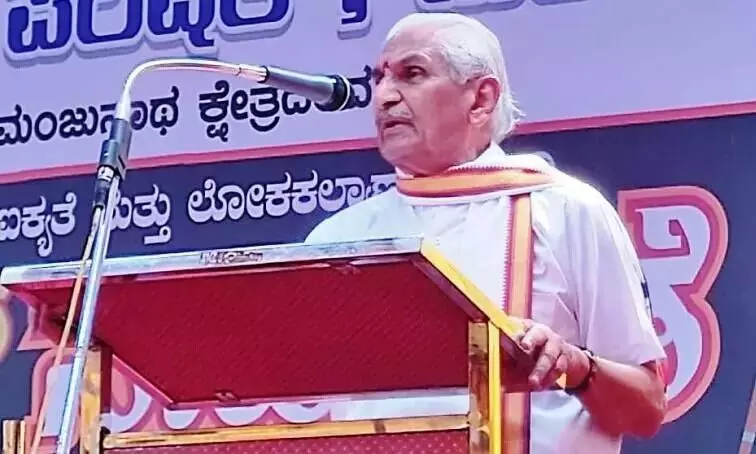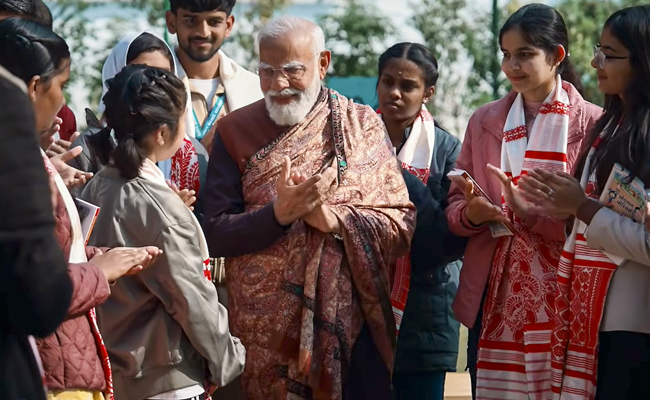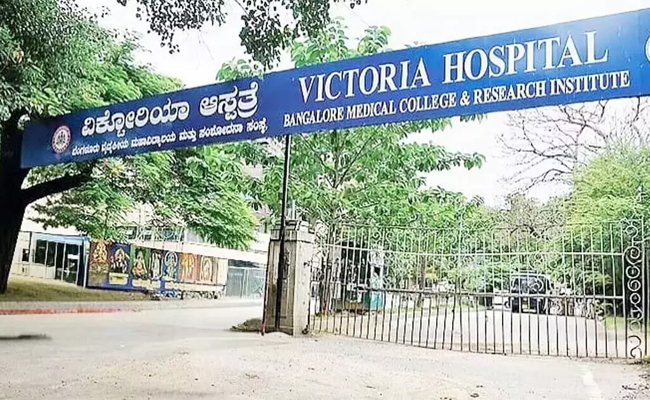Mandya: Rashtriya Swayamsevak Sangh (RSS) leader Kalladka Prabhakar Bhat has been booked by the Mandya Police under various sections of the Indian Penal Code (IPC) following a complaint filed by Najma Nazeer, a local social worker.
The complaint stems from Bhat's controversial remarks made during the 'Sankeerthana Yatra' held as part of Hanuman Jayanti celebrations at Srirangapatna taluk, Mandya district, on Sunday, December 24.
Bhat's statements lauded Prime Minister Narendra Modi's government and its actions, particularly the criminalization of the practice of triple talaq. He asserted that Muslim women were granted "permanent husbands" by criminalizing triple talaq, claiming that before this intervention, Muslim women did not have stable marriages. Bhat's remarks drew attention to the 2019 parliamentary approval of a Bill that criminalized the Muslim practice of instant divorce.
ALSO READ: Bengaluru top-cop issues guidelines, warnings ahead of New Year celebrations in state capital
Addressing the hijab ban issue in educational institutions, Bhat warned against withdrawing the ban and challenged Karnataka's Chief Minister Siddaramaiah, questioning his authority to lift the ban. He also issued threats and challenges to a Muslim student, Muskan Khan, who had defended wearing hijab in educational institutions earlier in the year.
In his statements, Bhat emphasized the importance of Hindu population growth, expressing concerns about Hindus becoming a minority. He suggested that if the trend continued, there would be chants of "Pakistan Zindabad."
The Mandya Police filed a case against Bhat under sections 354, 295, 509, 506, 153(A), 295, 295(A), and 298 of the IPC based on the complaint filed by social worker Najma Nazeer.
Let the Truth be known. If you read VB and like VB, please be a VB Supporter and Help us deliver the Truth to one and all.
Bengaluru (Karnataka): February 06: Hasiru Farms, a theme-based managed farmland and eco-habitat brand rooted in sustainability and cultural living, marked National Road Safety Month and India’s 77th Republic Day with a 77-kilometre Cyclothon and the official launch of its latest project, VRUKSHA – Power in Every Root. Hasiru Farms in association with the AWF (Avanti Welfare Foundation) cycling community, the 77-km Cyclothon was flagged off from HSR Layout, Bengaluru, and concluded at the VRUKSHA project site off Kanakapura Road. The initiative brought together road safety awareness, environmental responsibility, and community-led land stewardship through an on-ground experiential movement.
Held during National Road Safety Month, the Cyclothon highlighted road discipline, safety, and sustainable modes of travel, encouraging participants to view progress as mindful and inclusive—both on roads and in life. On arrival at the project site, participants took part in a 77-tree plantation drive, with each sapling representing one year of India’s Republic.
“Road safety is about responsibility. Republic Day is about duty. VRUKSHA is about legacy. The project offers curated farmland plots within a professionally managed ecosystem, supported by long-term plantation planning, maintenance, and community-centric spaces.” said MS Akshar, Founder, MD & CEO from Hasiru Farms. “Through this initiative, we want to balance sustainability, tradition, culture, and modern living for better living”
The launch of VRUKSHA was designed as a calm, immersive experience rather than a conventional real estate event. The programme included guided walks through existing arecanut plantations, project walkthroughs, open interactions with the Hasiru Farms team, and a shared community meal. Conceived as “The Earthen Antidote,” VRUKSHA is a theme-based managed farmland project aimed at addressing urban fatigue and disconnection from nature. Planned features include Mannina Mane (mud homes) and shared areas focused on wellness, learning, and nature-led living.
About Hasiru:
Founded in 2021, Hasiru Farms operates across Karnataka, with projects in regions such as Kanakapura, Magdi, Ramanagar, Sakleshpur, and surrounding green corridors. The brand is known for its theme-based managed farmland developments that integrate sustainability, cultural relevance, and long-term value creation.
(Disclaimer: The above press release comes to you under an arrangement with PNN and PTI takes no editorial responsibility for the same.).





